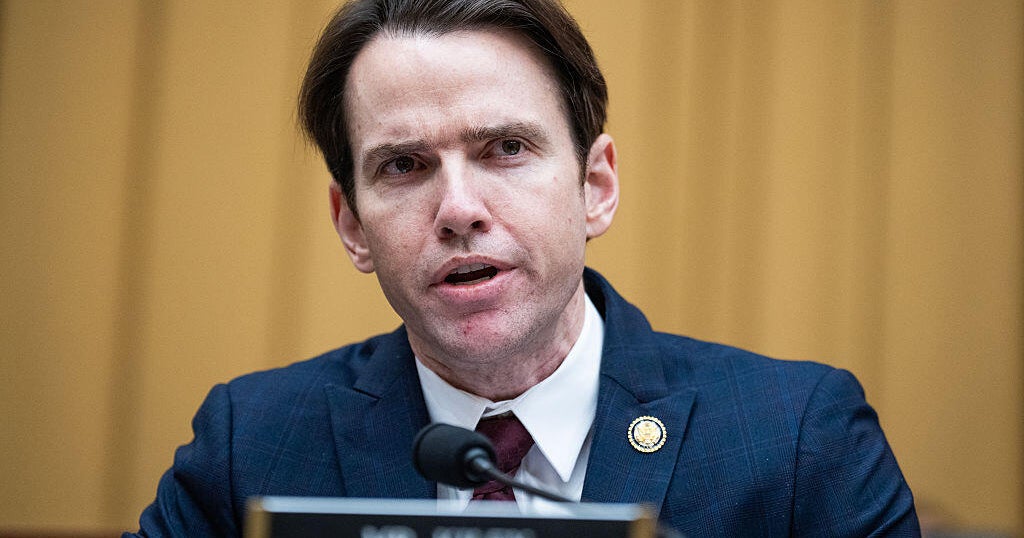Congressman Jim Jordan texted Mark Meadows to argue Pence could block election certification
On January 5, Congressman Jim Jordan sent a text message to then-White House chief of staff Mark Meadows that argued that the certification of the 2020 election could be blocked by the vice president.
"On January 6, 2021, Vice President Mike Pence, as President of the Senate, should call out all electoral votes that he believes are unconstitutional as no electoral votes at all," the text message read.
Jordan's office confirmed on Wednesday that the text message had come from him, after the House select committee investigating the January 6 assault on the Capitol revealed a portion of the message Monday. But a spokesperson for Jordan said the message shown by the committee was incomplete and had not in fact been written by Jordan, but by Joseph Schmitz, a D.C. lawyer and former Defense Department inspector general.
"Mr. Jordan forwarded the text to Mr. Meadows, and Mr. Meadows certainly knew it was a forward," said Jordan's communications director, Russell Dye.
In a meeting the committee held Monday to advance a criminal contempt motion against Meadows for not sitting for a deposition, Congressman Adam Schiff argued that the text messages show why it's important that the panel talk to Meadows.
"You can see why this is so critical to ask Mr. Meadows about a lawmaker suggesting that the former vice president simply throw out votes that he unilaterally deems unconstitutional in order to overturn a presidential election and subvert the will of the American people," Schiff said.
Schiff referred to Jordan only as "a lawmaker" in his presentation and showed a graphic that appeared to indicate it was the complete text message sent to Meadows. However, a spokesperson for the select committee said that the period at the end of the text shown on the slide "was added inadvertently."
The remainder of the message, which the select committee released after Jordan's office said it was incomplete Wednesday, outlined a shaky legal argument that Pence, as vice president, had the right to reject electoral votes.
He could do so, it said, "In accordance with guidance from founding father Alexander Hamilton and judicial precedence. 'No legislative act,' wrote Alexander Hamilton in Federalist No. 78, 'contrary to the Constitution, can be valid.' The court in Hubbard v. Lowe reinforced this truth: 'That an unconstitutional statute is not a law at all is a proposition no longer open to discussion.' 226 F. 135, 137 (SDNY 1915), appeal dismissed, 242 U.S. 654 (1916). Following this rationale, an unconstitutionally appointed elector, like an unconstitutionally enacted statute, is no elector at all.'"
Meadows had cooperated up to a point with the select committee, handing over some emails and text messages, but he stopped sharing documents and refused to sit for a deposition last week. The House voted on Tuesday to find him in contempt of Congress for failing to comply with the subpoena the committee issued him
It is up to the Justice Department to decide whether to prosecute Meadows for a charge that could carry a sentence of up to a year in jail. The department last month indicted Steve Bannon, whom the House had found in contempt on the same charge. But Bannon's case differs in that he did not cooperate with the committee at all.
The House select committee, created by Speaker Nancy Pelosi earlier this year, is investigating the January 6 attack, when thousands of Trump supporters descended on the Capitol as Congress counted the electoral votes, a largely ceremonial final step affirming President Biden's victory. Lawmakers were sent fleeing amid the riot, which led to the deaths of five people and the arrests of hundreds more. Trump, who encouraged his supporters to "walk over" to the Capitol during the Stop the Steal rally, was impeached by the House one week later for inciting the riot but was later acquitted by the Senate.



